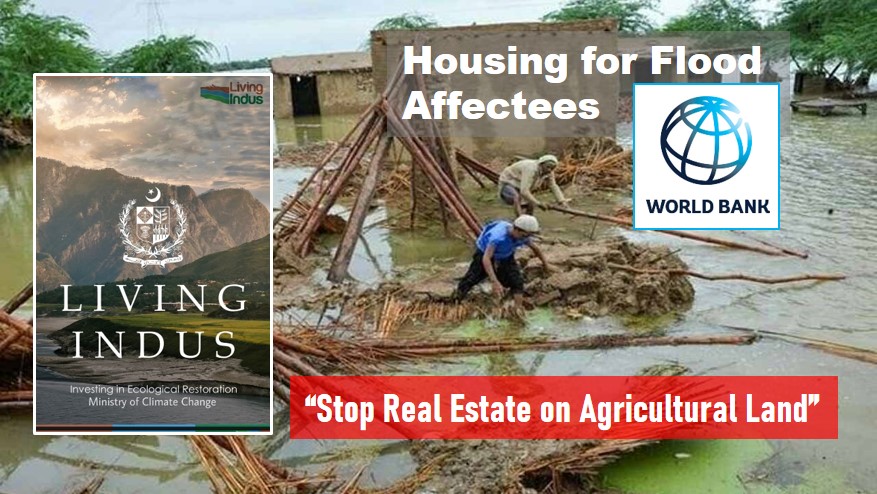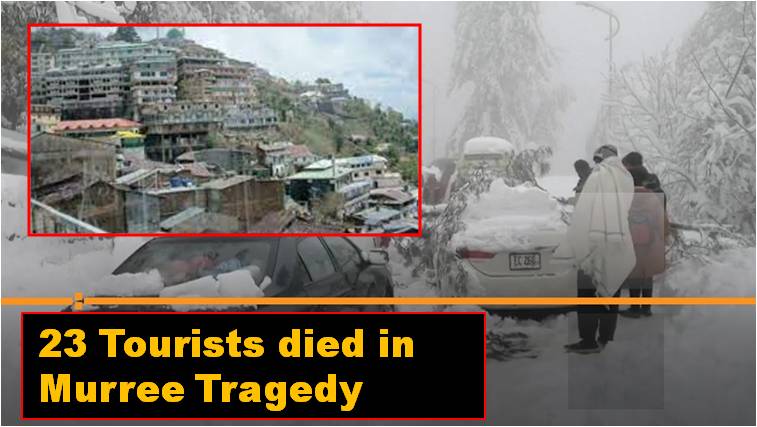28 May 2023
New Climate Economy Proposed
A study commissioned by the Asian Development Bank (ADB) suggests transition to the new climate economy will have to be just and apply nature-based solutions as the impact of climate change will be severe worldwide. Titled “Supporting Regional Actions to Address Climate Change”, the study cautions “Even though many of the more severe impacts of climate change appear to be a long time away, many critical actions have to be taken urgently, rather than being deferred to an uncertain future date.” And, describing financing as a critical ingredient which is often a severe constraint at the country level, the study emphasised that climate change action and financing has to be actively planned and accounted for. Climate strategies will need credible financing plans, which include domestic public and private resources, as well as international public and private resources. Macroeconomic constraints, and especially the sustainability of external debt, have to be respected and addressed. The implementation of these strategies needs the support of international development partners an “all-of partners” approach will be needed to complement an `all-of-government` and “all-of-country` approach.”

Climate change has raised many complex issues for policymakers, both in mitigation and adaptation, that are closely interrelated and, hence, require a systemic perspective, and in this regard, the ADB study identified and explored 43 climate change issues to be considered by policymakers in the Central Asia Regional Economic Cooperation region. A national climate strategy typically needs to be developed, which incorporates the nationally-determined contributions (NDCs), mostly relating to mitigation and, where contained in a separate document, the planned national adaptation actions, the ADB study states. All countries in the stated region have prepared NDCs, some have climate change strategies, and others have adaptation plans. Monitoring is an essential complement to implementation to ensure intended results are achieved.
Dilemma continues of Overseas Pakistanis Nilore Heights
Prime Minister Shehbaz Sharif ordered an inquiry against the Capital Development Authority (CDA) for launching the Nilore Heights project for overseas Pakistanis without removing lacunas. The CDA launched the said housing scheme in collaboration with Naya Pakistan Housing Development Authority (NPHDA) in 2021. The civic agency allocated its own land and funds for the said project. Later on, the CDA decided to sell out 2,000 apartments exclusively to overseas Pakistanis. However, before the said move, the NPHDA had already allotted a number of apartments to the lower-income segments of society. Subsequently, when the CDA decided to sell about 2,000 apartments exclusively to expatriates, the incumbent government provided full backing to the civic body to boost its foreign exchange reserves.

In its earlier brief dated May 14, 2023, infocus.pk already mentioned about the Nilore Heights dilemma. The project received an overwhelming response, as 6,000 applications have been submitted by the expatriates against 2,000 apartments in the first phase of the project. A two-bed apartment was to be sold at a cost of $30,000. But, the project faced a setback when a case was filed in the Islamabad High Court against CDA`s planned balloting to sell these flats to overseas Pakistanis. This litigation forced the CDA to postpone the balloting which was slated to be held on May 16. According to news reports, PrimeMinister Shehbaz Sharif expressed displeasure over CDA`s failure to remove lacunas before launching the said project for overseas Pakistanis, specifically why was this project launched when the NPHDA had already allotted flats to locals.
World Bank Financing for Flood-affected Victims
The World Bank has approved $213 million in financing to Pakistan to help improve livelihoods and essential services and enhance risk protection to communities affected by the 2022 floods, particularly those in Balochistan. The announcement came after the conclusion of the two-day meeting of the International Partners Support Group (IPSG) at the Prime Minister Secretariat that so far projects worth $975m had been finalised for implementation including $575m financing from the Asian Development Bank and $400m by the World Bank. “This will not only help restore livelihoods but also protect the population by improving their resilience to potential future climate related disasters and natural hazards” said Najy Benhassine, World Bank Country Director for Pakistan. This project is part of the comprehensive package of post-flood rehabilitation and resilient-reconstruction program, as it will provide housing reconstruction grants to approximately 35,100 homeowners to rebuild their homes following resilience standards and livelihood grants to smallholder farmers to support livestock and promote climate-smart agriculture and other productive activities.

The IPSG meeting presided over by Climate Change Minister Sherry Rehman was attended by ministers, advisers and secretaries of Economic Affairs, Planning, Development and Special Initiatives and Poverty Alleviation Division besides bilateral and multilateral development partners, diplomats and country representatives of the World Bank, Asian Development Bank, Islamic Development Bank, International Monetary Fund and UN aid agencies and other donors from European countries. The project will also help restore essential services by rehabilitating damaged community infrastructure and facilities such as water supply, irrigation, roads, and community facilities. It is is targeted to benefit approximately 2.7 million people in selected communities in calamity declared districts across Balochistan. It will mitigate flood risks through a combination of resilient protection infrastructure, enhancing early warning systems, while ensuring that women have access to this system and disaster risk management information. IFRAP will restore degraded watersheds and strengthen institutional capacity at both the provincial and local levels.
Master Plan for Murree
The tragedy of January 2022 in which 23 tourists died in their vehicles trapped in heavy snow in Murree, a high-level inquiry committee was constituted which found negligence of officials and government departments in it. The committee recommended a conducive environment for tourists in the hill station. The committee recommended that Murree might be upgraded to the status of a district therefore a comprehensive master plan for the hill station needed to be prepared and implemented for the future development and promotion of the tourism destination. Lahore High Court Rawalpindi bench had also directed the administration to make a comprehensive master plan for the hill station and implement building bylaws to save the environment of the area.
Now, after one-and-a-half years, the divisional administration woke up from deep slumber and started work on preparing a master plan for the hill station of Murree. As Divisional Commissioner Rawalpindi presided over a meeting this week to review the implementation of the Murree contingency plan in the light of the high court directive. He said all departments should ensure the implementation of the court`s decision so that there was no room left for any such tragedy in future and formed a committee headed by Local Government Project Management Unit and directed that the master plan of Murree should be finalised as soon as possible. In the Master Plan strict building code regulations should be developed and implemented, land use control should be enforced strictly and illegal buildings and structures must be demolished forthwith. A modern early warning system may be established with the Met Department in Murree to warn officials, tourists and travelers.
Sindh Housings for Displaced & Unsheltered
In a meeting held in Chief Minister House Sindh, the Sindh cabinet this week decided to build 6,500 housing units over an area of 248 acres in the Malir Development Authority area to resettle the families whose homes were removed from three major stormwater drains. Chief Minister Syed Murad Ali Shah, who presided the meeting, said that the provincial government to resettle the affected families removed from the Gujjar, Mahmoodabad and Orangi nullahs. “I have already allocated Rs1 billion for the development of 248 acres handed over by the MDA to the local government (department),” he told the cabinet. Presenting two proposals, Local Government Minister Syed Nasir Shah said that the affected people of the three nullahs might either be given properly developed 80-sq-yard plots and a substantial amount to build their houses or their houses might be built by the LG department. “The project would cost around Rs10 billion, and its PC-I has been approved by the chief minister,” he added.

While for homes for flood-affected people, Revenue Minister Makhdoom Mahboob Zaman informed the cabinet that the houses that collapsed in the recent heavy rains and floods were constructed on government land. He added that the Board of Revenue has carried out an exercise and found that the plots of the collapsed houses could be regularised under Gothabad Scheme, Gothabad Housing programme, regularisation of the village programme and the Katchi Abadis Act. The cabinet decided to regularise the houses, as per their category, so that the beneficiaries could be given money for the construction of their house under the ongoing Peoples Housing Programme.



